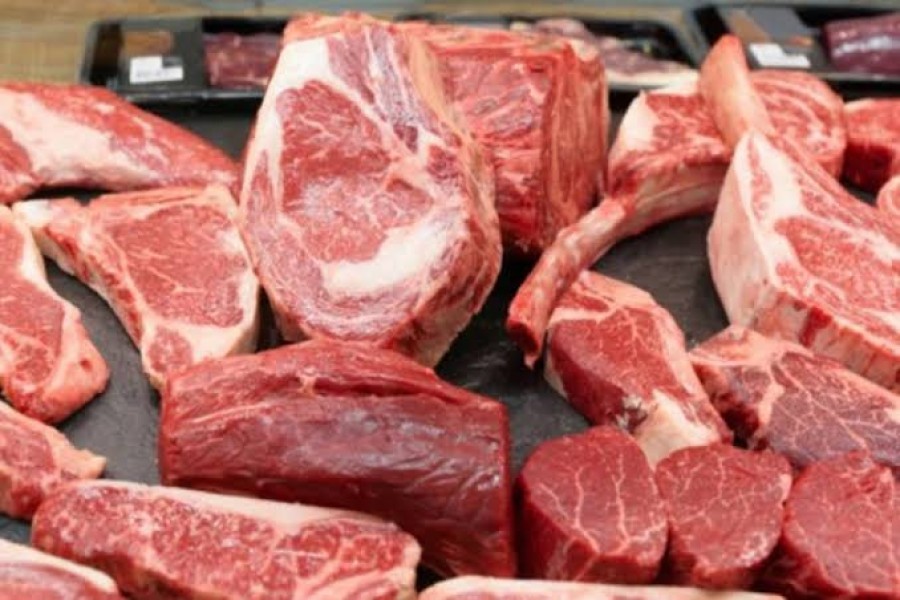Recent news stories on imported meat, particularly beef, has sparked a strong reaction among many who consider the country self sufficient in beef production and hence instead of importing -- that too from far flung regions in Africa and Latin America -- there should be a coordinated move to create facilities for export.
In fact, Bangladesh does export meat (including beef) to some select markets in the Middle East in small quantities. According to relevant quarters, exports could have been increased manifold given the ever-increasing global demand. However, there are stringent pre-export requirements such as fulfilling various compliance norms that pose problems for export.
For Bangladesh, halal meat is no doubt the most prospective segment for export. One of the key barriers to exporting halal meat from the country is clearly the absence of designated certification body. At a seminar organised recently by a lead Chamber in the capital, speakers strongly emphasised the need to develop infrastructure and a globally acclaimed halal food certification system to facilitate export of halal meat and grab a slice of the trillion-dollar global market.
Global industry value of halal food is projected to be around US$ 3.0 trillion by 2021 which was about $ 1.9 trillion in 2015, according to the Global Islamic Economy Report 2016-2017. Growth regions, besides the Middle Eastern and Gulf countries, include Indonesia and Turkey. The European Union market for halal food that predominantly includes meat, has an estimated annual growth of around 15 per cent and is worth an estimated US$35 billion. Halal ready foods represent a growing consumer market for Muslims and non-Muslims alike in Britain and America and are offered by an increasing number of retailers. In such a situation, export from Bangladesh is, sadly, too small. Presently, there is reportedly a single company, a well equipped one though, that exports to some select Middle Eastern markets.
The potential of exporting halal food, particularly meat, from the country is yet to be tapped despite its high prospect -- not to the Muslim countries alone but elsewhere as well. Considering the hygiene of cattle slaughter, the market of halal meat is growing fast in most Western countries, not necessarily to cater to the needs of Muslim consumers. In a situation like this, it was expected that halal meat would steadily emerge as a product to reckon with in Bangladesh's export basket. This, unfortunately, has not happened, and signs too do not suggest that things are well set to utilise the opportunity. This has been found to be mainly due to deficient compliance in respect of certain certification requirements.
Recent media reports say Bangladesh stands to lose a sizeable market share of halal meat in the Middle Eastern countries -- one of the major markets of the product, as it is yet to comply with the conditions set earlier for export. Indeed, certification is crucial in case of most food items, sometimes quite stringent, in order that exported products do conform to the importing country's standards. So, it is natural that exporters are to fulfil those requirements as preconditions to export. It has been gathered that the Saudi Arabian government was willing to procure raw and processed meat from Bangladesh subject to compliance as regards certification on the maintenance of standard and hygiene of meat by the designated agency of the government of Bangladesh. The designated agency, the department of livestock, is still way behind fulfilling the requirements.
The difficulties impeding export of halal meat from Bangladesh are also related to cattle rearing in disease-free locations and the processes involve in the pre and post-slaughter stages. Certification is required to testify compliance as regards the entire process-from rearing to slaughtering and packaging for export. This, no doubt, is an elaborate process, and putting in place a designated government body to do the certification job would involve use of technology besides specialised manpower in conformity with the practices followed in other exporting countries.
In this context, it may be noted that around three decades back the country was faced with a similar problem in exporting shrimp, as exporting needed to comply with a detailed procedure called HACAP (hazard analysis at critical control points). The government was able to put the facilities in place for HACAP to the full satisfaction of the importing countries, mainly of the then EC (European Community) countries. The practice is still followed without any problem relating to compliance fulfilment.
It is at this point that in doing a similar job i.e., setting up a body for certifying the entire process of meat production, the onus is entirely on the government. And in view of the market prospect to allow a potential export sector to emerge in the country, it is expected that the government would not take too long to do the needful.


